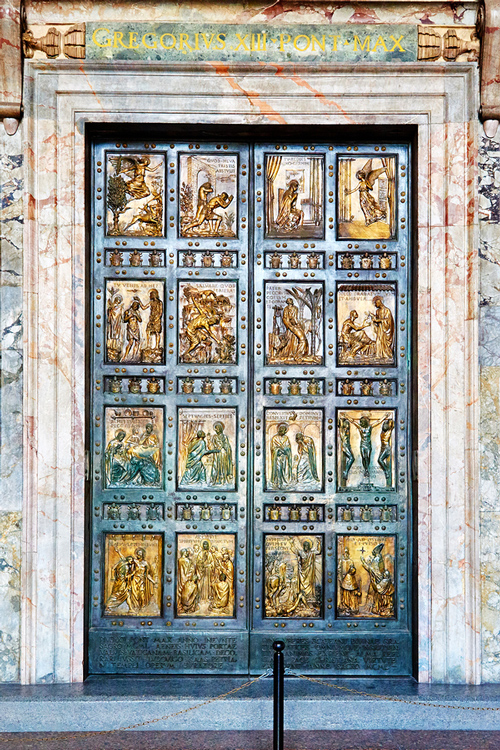
Pope Francis has designated the upcoming liturgical year as an extraordinary jubilee of divine mercy. The custom of observing jubilees is an ancient part of God’s Covenant with Israel.
As they neared the Promised Land, God asked the Israelites to observe every seventh year as a sabbatical. This was to be a time of rest for the land to demonstrate that God provides even without human effort. God further instructed that after every seventh Sabbath year, i.e. every 50th year, a jubilee year acceptable to the Lord would ensue.
In jubilee years the land was to remain uncultivated and those working off debts to lien holders were to be permanently freed and allowed to return to their own property. Property itself was to be bought and sold with the idea that every 50 years it would return to its original owner’s ancestors. All of this was to serve as a reminder that the Lord God is the origin of food, property, liberty and all benefits.
By the time the prophet Isaiah recorded God’s revelations, it dawned on the people that the threat of economic debt had been supplanted by a spiritual debt of sin. Great hope was expressed that a redeemer would come to reconcile the tally between God and man.
In Luke 4, Jesus finds Himself in a synagogue and is handed a scroll from the prophet Isaiah. The very text promising a redeemer would come to renew the jubilee — “a year acceptable to the Lord” — in order to liberate those captivated, blinded, and impoverished by sin runs across Jesus’ lips.
For believers, this was accomplished by the Passion, death, resurrection and ascension of Christ. Pope Boniface VIII established the first recorded Christian jubilee in 1300, but he refers to prior traditions such as how religious would observe their 50th anniversary of profession.
Jesus’ work of reconciling the debt of sin was the theme behind the jubilee and Pope Boniface encouraged the faithful to make tangible pilgrimage to Rome’s St. Peter’s Basilica. Gradually, the concept of a jubilee door developed, inspired by Jesus’ declaration that He is the door through which those who enter find salvation in verdant pastures.
St. John Paul II once wrote that passing through a holy door so designated by the pope, or local bishop, “evokes the passage from sin to grace which every Christian is called to accomplish.” Pope Francis will inaugurate a Holy Door at St. Peter’s in Rome on Dec. 8.
For the benefit of those unable to make a pilgrimage to Rome, Bishop Robert E. Guglielmone will inaugurate a Holy Door at the Cathedral of St. John the Baptist in Charleston on Dec. 13. Several other churches throughout the state will also have a Holy Door to facilitate an easier expression of the tangible act whereby believers pass from misstep to mercy.
The Holy Door is a jubilant portal to another world in which believers remember God and He remembers what He has promised. That is what mercy is all about!
Photo: The Holy Door is the northern entrance at St. Peter’s Basilica in the Vatican. It is cemented shut and only opened for Jubilee Years.

